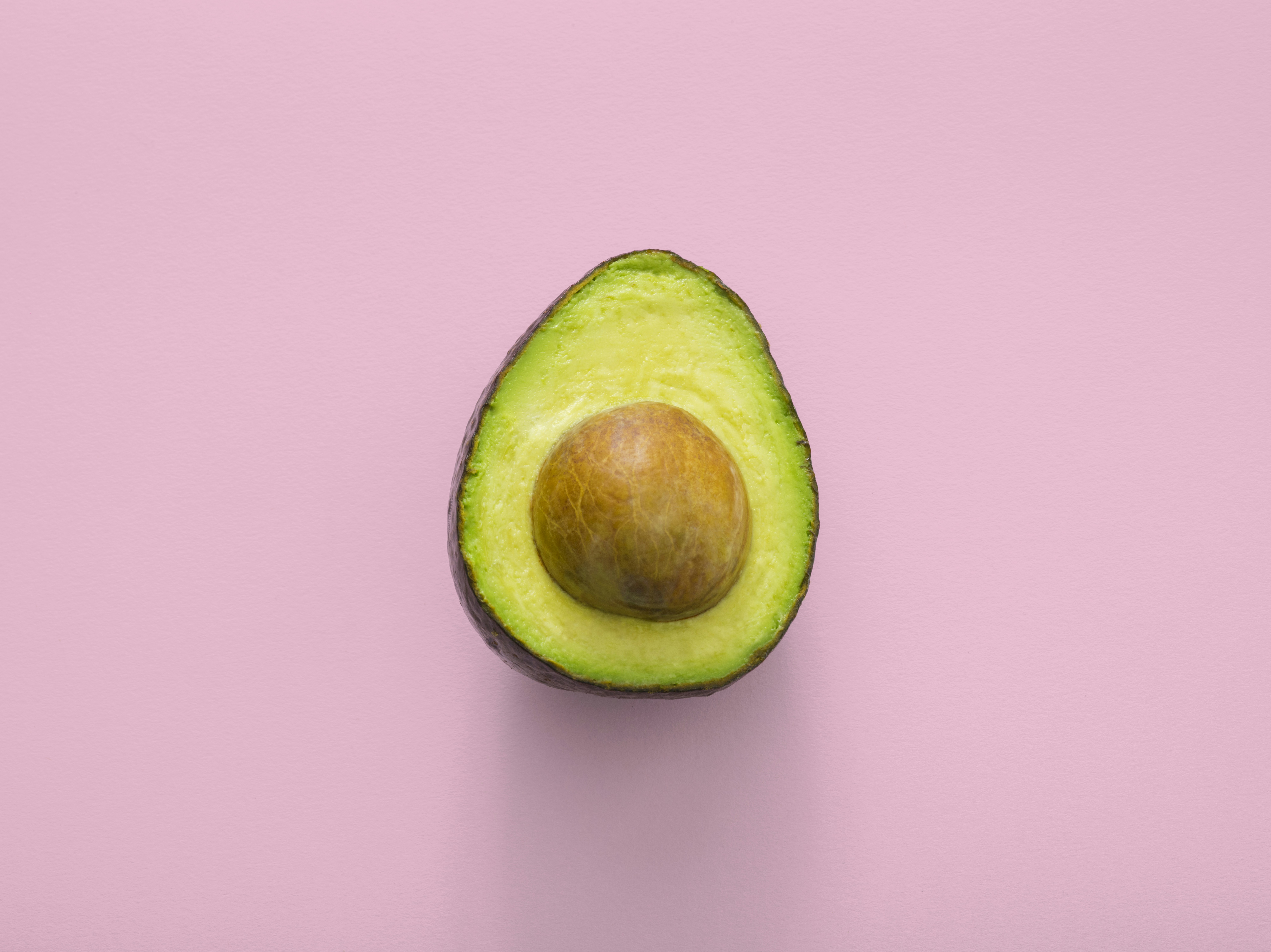In this article, you will learn whether it is possible to freeze baked beans after they have been cooked. We will explore this topic and provide you with the necessary information to make an informed decision about freezing your leftovers.
The good news is that you can freeze baked beans after cooking! Freezing them will not only help you preserve your leftovers, but it will also allow you to have a quick and convenient meal option for later. Just make sure to store them in airtight containers or freezer bags to maintain their quality and prevent freezer burn. When you’re ready to enjoy your frozen baked beans, simply thaw them in the refrigerator overnight and then reheat them on the stove or in the microwave. So go ahead and freeze those delicious baked beans without any worries!
Can You Freeze Baked Beans After Cooking
Baked beans are a comforting and versatile dish that can be enjoyed on their own or as a side dish. Whether you’ve made a large batch or have leftovers from a previous meal, you may be wondering if you can freeze baked beans to extend their shelf life and reduce food waste. The good news is, yes, you can freeze baked beans after cooking! Freezing baked beans not only preserves their nutritional value but also offers convenience and time-saving benefits. In this article, we will explore the benefits of freezing baked beans, proper preparation and storage techniques, thawing and reheating methods, creative ways to use frozen baked beans, potential issues and tips, safety guidelines, and more. So let’s dive in!
The Benefits of Freezing Baked Beans After Cooking
Preservation of Nutritional Value
Freezing baked beans after cooking helps preserve their nutritional value. Beans are an excellent source of protein, fiber, and essential minerals such as iron and potassium. The freezing process slows down enzymatic activity, which helps retain the nutrients present in the beans. By freezing baked beans, you can ensure that you’re still getting the same nutritional benefits even after storing them for an extended period.
Convenience and Time-Saving
Freezing baked beans can be incredibly convenient, especially if you lead a busy lifestyle or enjoy meal prepping. By freezing them, you can prepare a large batch of baked beans and portion them out for future meals. This way, you’ll always have a delicious and nutritious side dish ready to go. Additionally, freezing baked beans allows you to make-ahead meals, saving you time on busy weekdays when you may not have the energy or time to cook from scratch.
Reducing Food Waste
Freezing baked beans is an excellent way to reduce food waste. If you find yourself with leftover baked beans that you won’t be able to consume within a few days, freezing them can prevent them from going to waste. Instead of throwing them away, simply freeze the leftovers for later use. By doing so, you’re not only saving money but also contributing to sustainable food practices.
Proper Preparation and Storage for Freezing Baked Beans
Proper preparation and storage are crucial when it comes to freezing baked beans. Following these steps will help retain the quality and taste of the beans.
Cooling the Baked Beans
Before freezing baked beans, it’s essential to cool them down completely. Leaving them at room temperature for an hour or two helps prevent the growth of bacteria and ensures that they freeze evenly. Once cooled, they are ready for portioning and packaging.
Dividing into Suitable Portions
When freezing baked beans, it’s best to divide them into suitable portions. This way, you can easily take out and thaw only the desired amount without having to defrost the entire batch. Consider your typical serving size or the amount needed for a specific recipe. Use resealable freezer bags or suitable containers to hold the portioned baked beans.
Proper Packaging Techniques
Proper packaging is key to maintaining the quality of frozen baked beans. Here are a few packaging methods to consider:
Freezer Bags
Freezer bags are a convenient option for freezing baked beans. They are designed to withstand low temperatures without becoming brittle or breaking. Before sealing the bag, try to remove as much air as possible to prevent freezer burn. Label the bag with the date of freezing for easy identification.
Plastic Containers
Another option for freezing baked beans is using plastic containers. Choose containers that are specifically designed for freezer storage and have airtight lids. Fill the containers with the baked beans, leaving some headspace to allow for expansion during freezing. Again, don’t forget to label the containers with the freezing date.
Vacuum-Sealed Bags
Vacuum-sealed bags are an excellent choice for long-term storage of baked beans. They remove air from the packaging, ensuring the beans stay fresh and free from freezer burn. Follow the manufacturer’s instructions for properly sealing the bags, and label them accordingly.
Choosing the Right Freezing Containers for Baked Beans
When it comes to freezing baked beans, choosing the right containers is essential for maintaining their quality and taste.
Freezer Bags
Freezer bags are a versatile option for freezing baked beans. They are suitable for both portioning out individual servings and storing larger quantities. Freezer bags take up less space than rigid containers, making them ideal for those with limited freezer room. However, remember to remove as much air as possible from the bags to prevent freezer burn.
Plastic Containers
Plastic containers are a durable and reusable option for freezing baked beans. They come in various sizes and shapes, allowing you to choose the most suitable one for your needs. Plastic containers offer better protection against potential crushing or damage compared to bags. However, they may take up more space in the freezer.
Vacuum-Sealed Bags
Vacuum-sealed bags are a great choice for long-term storage of baked beans. By removing air from the packaging, they help prevent freezer burn and maintain the quality of the beans. Vacuum-sealed bags also minimize the chances of cross-contamination as they create a tight seal around the food.
Labeling and Dating for Easy Identification
Labeling and dating the packaging are essential steps to help you easily identify and use the frozen baked beans.
Importance of Labeling
Labeling is crucial when it comes to freezing baked beans or any other food item. Clearly label the packaging to avoid confusion with other frozen goods. Use a permanent marker or labels specifically designed for freezer use, as regular labels may come off in the cold temperature.
Writing the Date of Freezing
Along with the label, be sure to include the date of freezing. This will help you keep track of how long the baked beans have been in the freezer and ensure that you consume them within a safe timeframe.
Proper Placement of Labels
Place the labels on the front or top of the packaging for easy visibility. If using bags, you can attach the label to the bag’s zipper closure or use a clip-on label. For containers, place the label on the lid or side where it is easily visible.
Thawing and Reheating Baked Beans
When it’s time to enjoy your frozen baked beans, proper thawing and reheating methods are crucial to ensure food safety and maintain the beans’ texture and taste.
Safe Thawing Methods
The safest method to thaw baked beans is to transfer them from the freezer to the refrigerator. Place the portioned or packaged beans in the refrigerator for several hours, or overnight, until fully thawed. This slow thawing process ensures that the beans remain at a safe temperature and minimizes the risk of bacterial growth.
If you’re short on time, you can also use the defrost function on your microwave to thaw the baked beans. Make sure to follow the manufacturer’s instructions and stop the defrosting process once the beans are partially thawed. Finish thawing them in the refrigerator to ensure even and complete thawing.
Recommended Reheating Techniques
There are several ways to reheat frozen baked beans, depending on your preference and time constraints. Here are a few recommended methods:
Stovetop: Place the thawed baked beans in a saucepan and heat them over medium heat, stirring occasionally to prevent sticking. You can add a small amount of water or broth if the beans appear dry.
Microwave: Transfer the thawed baked beans to a microwave-safe dish and heat them in 1-minute intervals, stirring in between, until fully heated. Be cautious not to overheat the beans to avoid altering their texture.
Oven: Preheat the oven to around 350°F (175°C). Place the thawed baked beans in an oven-safe dish, cover with foil, and heat for 15-20 minutes or until heated through. Stir occasionally for even heating.
Avoiding Overcooking
When reheating baked beans, it’s important to avoid overcooking them. Overcooked beans may become mushy or lose their shape. To prevent this, monitor the heat and cooking time closely, and be sure to stir the beans gently while reheating. Heating them just until warmed through will help retain their texture and flavor.
Creative Ways to Use Frozen Baked Beans
Frozen baked beans can be used in various delicious recipes. Here are a few creative ways to incorporate them into your meals:
Elevating Soups and Stews
Frozen baked beans can add depth and flavor to soups and stews. Simply thaw the beans and stir them into your favorite vegetable or meat-based soups. They not only enhance the taste but also contribute to the overall nutritional value of the dish.
Adding Flavor to Casseroles
Baked beans can be a fantastic addition to casseroles. Thawed and gently heated baked beans can be mixed into casseroles, such as shepherd’s pie or macaroni and cheese. They bring a unique sweetness and texture that complements other ingredients perfectly.
Making Bean Dips and Spreads
Thawed baked beans can be easily transformed into delicious bean dips and spreads. Blend the beans with some spices, herbs, and a bit of olive oil to create a flavorful dip. You can enjoy it with tortilla chips, crackers, or as a spread on sandwiches and wraps.
Potential Issues and Tips for Freezing Baked Beans
While freezing baked beans is generally a safe and efficient way to store them, there are a few potential issues to be aware of. Here are some tips to help you overcome these issues:
Texture Changes
Freezing and thawing baked beans can lead to slight changes in their texture. The beans may become slightly softer or more delicate. This is a natural result of the freezing process and shouldn’t affect the overall eating experience. If you prefer firmer beans, slightly undercook them before freezing.
Maintaining Proper Taste
To maintain the proper taste of the baked beans, it’s essential to handle them properly during preparation, freezing, and reheating. Follow the recommended storage and thawing methods to minimize any flavor changes. Adding extra seasoning or spices during reheating can also help enhance the taste, if desired.
Avoiding Freezer Burn
Freezer burn can occur if the baked beans are not properly packaged or if they are stored in the freezer for an extended period. To avoid freezer burn, ensure that the packaging is airtight and that you remove as much air as possible before freezing. If using containers, fill them to leave enough headspace for expansion during freezing. Additionally, consume the frozen baked beans within the recommended storage duration.
Other Frequently Asked Questions about Freezing Baked Beans
Here are answers to some common questions you may have when it comes to freezing baked beans:
Can You Freeze Baked Beans with Meat?
Yes, you can freeze baked beans with meat. The same freezing and thawing methods apply. Ensure that the meat is fully cooked before adding it to the baked beans, and follow the recommended storage guidelines.
Can You Freeze Baked Beans in Sauce?
Yes, you can freeze baked beans in sauce. The sauce helps retain moisture and flavor during freezing. Proper packaging and labeling are especially important to differentiate the baked beans with sauce from other frozen items.
Can You Freeze Baked Beans with Vegetables?
Yes, you can freeze baked beans with vegetables. Adding vegetables to baked beans can enhance their nutritional value and flavor. Follow the same freezing and thawing methods as described previously.
Safety Guidelines for Freezing and Storing Baked Beans
While freezing baked beans is generally safe, it’s essential to follow a few safety guidelines to ensure food safety:
Recommended Storage Duration
For optimal quality, it’s recommended to consume frozen baked beans within 3 to 6 months. While they may remain safe to eat beyond this timeframe, the quality may deteriorate over time.
Safe Temperature Range
Ensure that your freezer maintains a temperature of 0°F (-18°C) or below. This helps prevent the growth of bacteria and ensures the longevity of the baked beans.
Avoiding Cross-Contamination
When handling baked beans or any other food items, it’s crucial to maintain proper hygiene and avoid cross-contamination. Wash your hands thoroughly before handling the beans and sanitize all equipment and surfaces that come into contact with the food.
Is It Safe to Freeze Baked Beans Like Waffles After Cooking?
Yes, freezing cooked waffles is safe and easy. You can also freeze baked beans after cooking. Make sure to let both items cool completely before packaging. Use airtight freezer-safe containers or bags to prevent freezer burn. When ready to enjoy, simply reheat and savor your convenient homemade meal.
Conclusion
In conclusion, freezing baked beans after cooking is a fantastic way to preserve their deliciousness, enjoy the convenience of make-ahead meals, and reduce food waste. By following proper preparation and storage techniques, choosing the right freezing containers, labeling and dating for easy identification, and using safe thawing and reheating methods, you can enjoy the same great taste and nutritional benefits of baked beans even after freezing. Additionally, frozen baked beans offer endless creative possibilities, whether you’re looking to elevate soups and stews, add flavor to casseroles, or make delicious bean dips and spreads. By taking the necessary steps to ensure proper freezing and storage, you can enjoy the convenience, versatility, and cost-saving benefits of frozen baked beans. So go ahead, freeze those baked beans, and take your meals to the next level!





